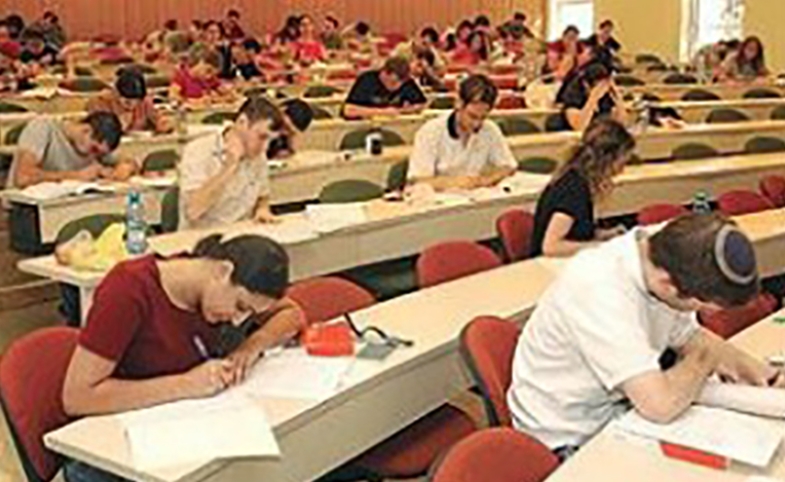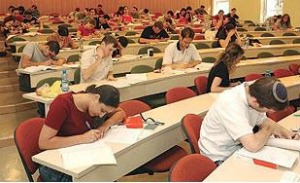From scapegoating and vitriolic anti-immigrant rhetoric to loss of confidence in long-standing international institutions such as NATO, the United Nations and even the European Union, it seems that there is disturbing...
KEEP READINGThe CPD Blog is intended to stimulate dialog among scholars and practitioners from around the world in the public diplomacy sphere. The opinions represented here are the authors' own and do not necessarily reflect CPD's views. For blogger guidelines, click here.

Exchange Power
Over a quarter of a million American students participate in study abroad programs each year, a four-fold increase in the last two decades to the present 262,416. According to the Institute of International Education’s eight new university exchange agreements with American universities, including Columbia’s Barnard College, Washington University in St. Louis, Arizona State University, University of Florida and Michigan State. All will receive seed grants of $50,000 to promote study abroad to Israel. The goal is to double the number of American student exchanges to 3,000 by 2013. According to the website of the Jewish Agency, “MASA, the Hebrew word for ‘Journey,’ is a strategic partnership between the Jewish Agency and the Government of Israel with an extraordinary vision: to dramatically increase the number of young Jews ages 18-30 from around the world on long-term Israel programs and forge a life-long connection to Israel and the Jewish people.”
Study abroad initiatives like MASA are not just for an individual’s personal fulfillment, cultural enrichment, resume padding, or professional development. They also have national security and policy objectives. Governments working with private agencies in such public-private partnerships have a goal to enhance the image of that host country in the eyes of the visiting student. The short-term outcome may be developing personal relationships with Israeli students and citizens. The long-term goal is to support Israeli foreign policy and strengthen U.S.-Israeli bilateral relations. This personal growth to policy objective continuum is no different from any country that seeks international students at institutes of higher education. The distinction with Israel is that its public image is infused with security concerns and an ongoing conflict between Israelis and Palestinians. Any international student in Israel must be open to immersion in debate that will ensue over internal politics and policies.
Nearly three times as many international students come to the United States as American students go overseas.
© The Japan Times. September 7, 2010
Japan has had a sluggish economy for more than a decade and an unusually public apology of its Tokyo CEO before the U.S. Congress following problems with sudden acceleration in some Toyota models. Yet it thrives as a soft power superpower in anime, manga (Japanese-language comics) and cultural “cuteness,” as exhibited by the omnipresence of Hello Kitty and Harajuku fashion. The 2009 Oscar-winning best documentary, The Cove, the controversy around Japanese whaling, and the growing dissent about American troop presence in Japan have raised the level of political discussion and tension to new levels, but the U.S.-Japan relationship remains strong and is fueled by one of the most active and enduring international exchange communities in Japan, including the Fulbright and the Japan Exchange and Teaching Programme (JET) programs. Japan is also seeking stronger cultural diplomacy ties with its major strategic energy partner Iran where plans are underway for joint exhibits and an exhibition of Iranian art in Japan.
© Ariel Jerozolimski, The Jerusalem Post, September 16, 2010
Despite the positive growth in American students going abroad, a curious pattern endures. Just over 4% of American students spend a full academic year overseas. Much more common (56%) is an 8-week sojourn, summer break, or January excursion, suggesting that a full cultural and language immersion remains the exception and not the rule. This may explain why Senator J. William Fulbright, author of the Fulbright educational exchange legislation in 1946, remained a lifelong proponent of yearlong student exchanges.
The international student in the United States is likely to stay for a much longer duration and earn an undergraduate or graduate degree.
Visit CPD's Online Library
Explore CPD's vast online database featuring the latest books, articles, speeches and information on international organizations dedicated to public diplomacy.
POPULAR ARTICLES
-
January 29
-
January 20
-
January 28
-
January 2
-
January 8
Join the Conversation
Interested in contributing to the CPD Blog? We welcome your posts. Read our guidelines and find out how you can submit blogs and photo essays >.














